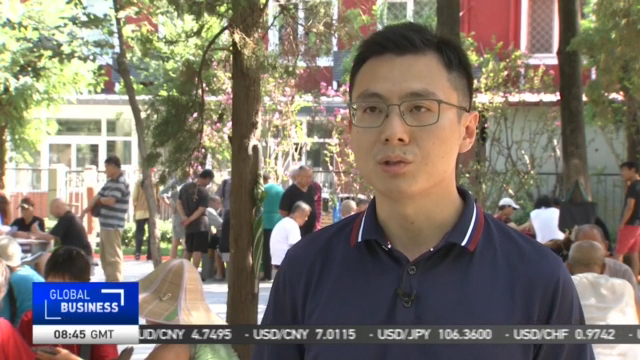
17:17, 14-Aug-2019
Urban Regeneration in China: Turning residential area in disrepair into new talent magnet
Updated
17:30, 14-Aug-2019

To China's property market where our own Xia Cheng went to check out some properties in downtown Beijing that are not that high in demand. He found out how businesses are adjusting for the mismatch of location and quality of living.
These apartment buildings are not hot properties, especially in the rental market, despite its easy commute to Beijing's central business district and the affordable price tags.
There are hundreds of blocks of decades to half a century old apartment buildings in downtown Beijing, long neglected and in disrepair without any property management, even though the land underneath is prime location.
The biggest concern is the safety and quality of living here. But things started to change, when this building was finally refurbished with elevators.
And that's a business opportunity that can be scaled up throughout the country.
Liu Chu's company is behind this urban facelift project. The company has been working with the government on several locations throughout Beijing.
LIU CHU, GM CHINA VISIONARY GROUP "42 percent of the residential buildings in Beijing in terms of area need to be refurbished. Hundreds of millions of people in China are living in buildings in disrepair. That's why the government is encouraging businesses to provide long-term property management solutions. That means 4 trillion yuan of investments."
Yet his company is still trying to find a replicable business model for this type of projects that have at least ten years of investment cycle.
LIU CHU, GM CHINA VISIONARY GROUP "The long investment cycle and low profit margin require patience from investors. It has to have enough scale to make economic sense. We spend mostly in reconstruction of landscape, property management cost, public facility upgrade and turning abandoned spaces into commercial spaces. We are also spending in elderly care projects and community events. In terms of revenue, we have property management fees, rental income from retail and service providers that come after the reconstruction and we are also exploring revenue streams from advertising in public spaces and maintenance services. We hope to find a sustainable business model so that more financial institutions can join us in the long-run."
In terms of the economic cycle of urbanization, China is focusing more on urban regeneration than city expansion.
WANG FEI, HEAD OF STRATEGIC CONSULTING JLL NORTH CHINA "After the rampant expansion of big Chinese cities, infrastructure investment return is dropping. Cities in China need to be renewed to be more evenly developed and more attractive for business. Uneven property development has left part of the inner cities in New York and London empty. China wants to avoid that."
As China's property sector cools and economic growth slows, the urban development model has to change.
WANG FEI, HEAD OF STRATEGIC CONSULTING JLL NORTH CHINA "Talents starting businesses are key for cities' economic vitality. Urban regeneration helps restore that vitality by providing better yet affordable living for young talents. That's a foundation for the development of surrounding urban amenities and commercial real estate. By doing so, China can increase these big cities' competitiveness and build greater city clusters around those key metropolises for long-term economic growth."
SITEMAP
Copyright © 2018 CGTN. Beijing ICP prepared NO.16065310-3
Copyright © 2018 CGTN. Beijing ICP prepared NO.16065310-3